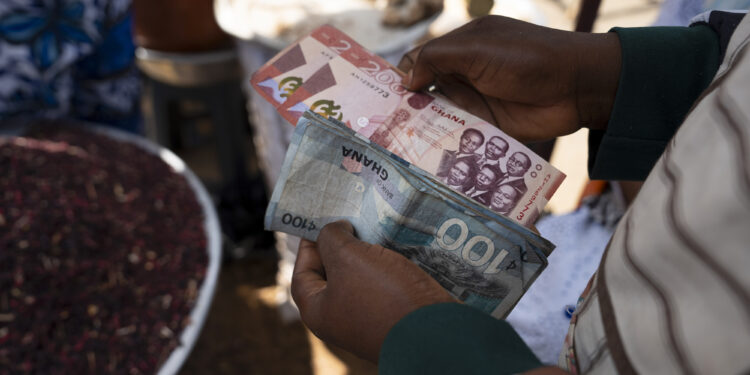Treasury Bill Rate Decline Sparks Concerns Over Cedi Stability
The Institute of Public Policy and Accountability (IPPA) has warned against premature celebrations over the recent sharp decline in Ghana’s treasury bill (T-bill) rates, cautioning that the drop is artificial and could exert renewed pressure on the cedi.
The think tank has argued that the lower yields could prompt capital outflows as investors seek higher returns in alternative assets, particularly the US dollar. It warned that this shift could reverse recent progress in curbing inflation and destabilise the local currency.
“The finance minister should not rush to celebrate what we describe as an inaccurate reflection of the true interest rate environment. Ghana’s core fiscal challenge remains inadequate revenue collection and borrowing for consumption,” IPPA stated. “We caution against excessive pressure on the cedi, driven by an anticipated increase in demand for the US dollar.”
The concern is echoed by Kwamina Asomaning, Managing Director of Stanbic Bank and President of the Ghana Association of Banks, who acknowledged that while lower T-bill rates could benefit the economy, they have also increased demand for dollar-denominated assets, exacerbating pressure on the currency.
The cedi, which has remained volatile, is yet to achieve the relative stability seen in 2018 and 2019, according to IPPA. The institute noted that sharp declines in interest rates historically raise concerns over capital flight and exchange rate vulnerabilities.
While the government has positioned the decline in T-bill yields as a positive indicator of economic recovery, market participants remain cautious. IPPA urged the finance ministry to work closely with the Bank of Ghana to maintain a balanced approach to monetary policy.
“He should always factor in downside risks when pursuing policy decisions. The reduction in T-bill rates should be accompanied by a corresponding decline in lending rates to ease the cost of doing business,” the institute stated. “We need fiscal policies that prioritise revenue mobilisation while fostering a business-friendly environment.”
Since January 2025, T-bill yields have fallen by more than 10%, yet commercial lending rates remain elevated. Meanwhile, recent auctions have seen a decline in demand for short-term government instruments as investors seek higher-yielding alternatives.









These mushroom think thanks must give us a break. Where were they when Ghana’s economy was being mismanaged over the last 8years? We have never heard of this particular so called think thank in the past. They should have advised Ken Ofori Atta. Please leave DR ATO Forson alone to do his work. T-Bill rates are falling, Inflation is inching downwards even before harvest time. it shall be well.
This is very terrible journalism. It has declined so what was the rate then and what is the rate now? Where are those figures and facts? The major thing you were reporting on, you couldn’t get a figure?